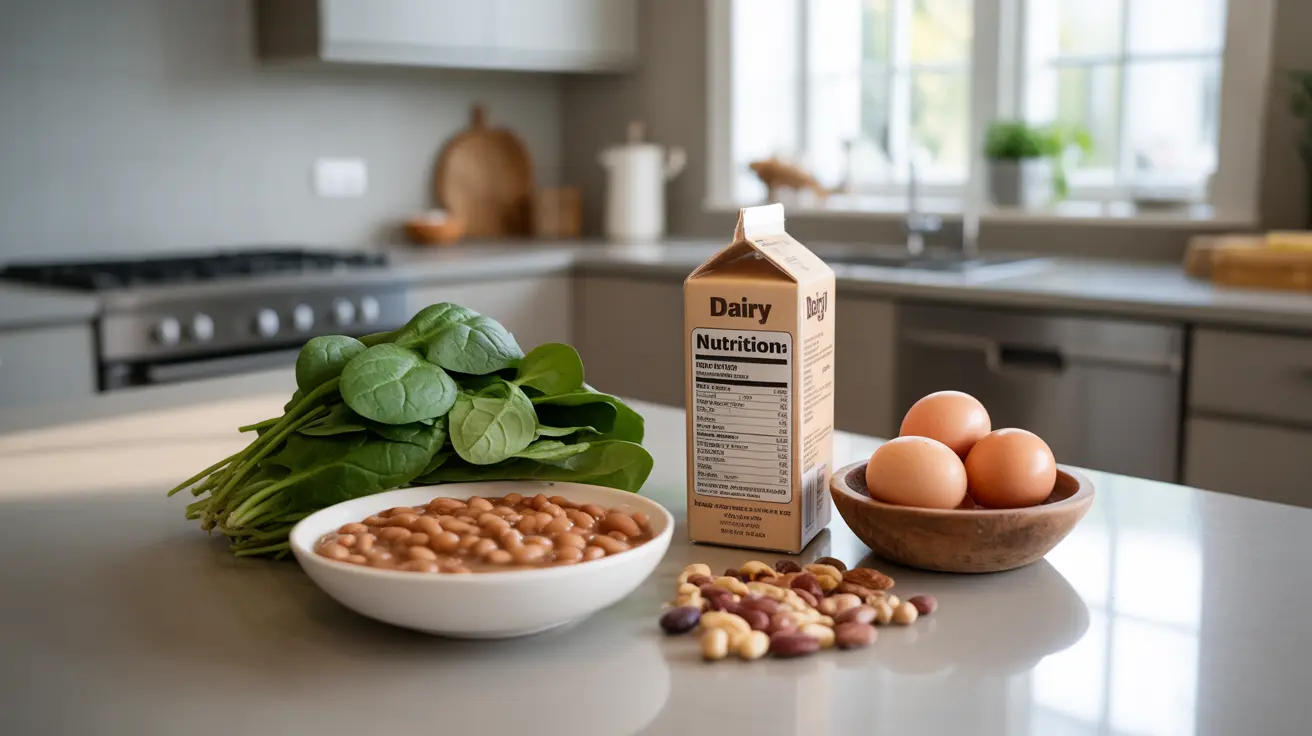Glutamine is a vital amino acid that plays crucial roles in immune function, digestive health, and cellular recovery. Whether you're looking to support your overall health or manage specific health conditions, understanding which foods are naturally rich in glutamine can help you make informed dietary choices.
In this comprehensive guide, we'll explore the best natural sources of glutamine, their benefits, and how to incorporate them effectively into your diet, with special considerations for different dietary preferences and health conditions.
Top Natural Sources of Glutamine
Understanding which foods contain high levels of glutamine can help you maximize your intake through diet alone. Here are the primary food categories rich in this important amino acid:
Animal-Based Sources
These sources typically provide the highest concentrations of glutamine:
- Eggs (especially egg whites)
- Beef and grass-fed meat
- Chicken and turkey
- Fish (particularly tuna and salmon)
- Dairy products (milk, yogurt, cheese)
Plant-Based Sources
Vegetarians and vegans can obtain glutamine from these sources:
- Legumes (beans, peas, lentils)
- Tofu and tempeh
- Spinach and other leafy greens
- Cabbage and fermented vegetables
- Nuts (especially almonds and walnuts)
Benefits of Dietary Glutamine
Including glutamine-rich foods in your diet can provide several important health benefits:
- Supports immune system function
- Aids in digestive health maintenance
- Helps with muscle recovery after exercise
- Supports cellular repair and regeneration
- May help reduce inflammation
Special Dietary Considerations
Different individuals may need to adjust their glutamine intake based on specific health conditions or dietary restrictions. Working with a healthcare provider can help determine the optimal approach for your situation.
For Athletes and Active Individuals
Athletes may benefit from increased glutamine intake through food sources to support muscle recovery and immune function during intense training periods.
For Those Following Plant-Based Diets
Combining different plant-based sources throughout the day can help ensure adequate glutamine intake when following a vegetarian or vegan diet.
Frequently Asked Questions
What are the best foods naturally high in glutamine to include in my diet?
The best natural sources include animal proteins like eggs, beef, chicken, and fish, as well as plant-based options such as beans, spinach, and cabbage. For optimal intake, include a variety of these foods in your regular meal planning.
Can eating foods high in glutamine affect cancer growth or treatment outcomes?
The relationship between dietary glutamine and cancer is complex. While glutamine is important for cellular health, anyone undergoing cancer treatment should consult their oncologist about their specific dietary needs and restrictions.
How does glutamine help reduce side effects from cancer therapies like chemotherapy?
Glutamine may help protect the digestive tract lining and support immune function during treatment. However, its use should always be discussed with your healthcare team to ensure it's appropriate for your specific situation.
Is it safe to take glutamine supplements during cancer treatment, and when should I consult a doctor?
Always consult your oncologist before starting any supplements during cancer treatment. They can evaluate your individual case and determine whether supplementation is safe and appropriate for your specific situation.
How can people on plant-based diets ensure they get enough glutamine from their food?
Plant-based eaters can ensure adequate glutamine intake by consuming a variety of legumes, nuts, tofu, tempeh, and leafy greens. Combining different plant proteins throughout the day helps optimize amino acid intake.
Conclusion
By incorporating a variety of glutamine-rich foods into your diet, you can support your body's natural functions and potentially enhance your overall health. Remember to consult with healthcare professionals about your specific dietary needs, especially if you have underlying health conditions or are undergoing medical treatment.




